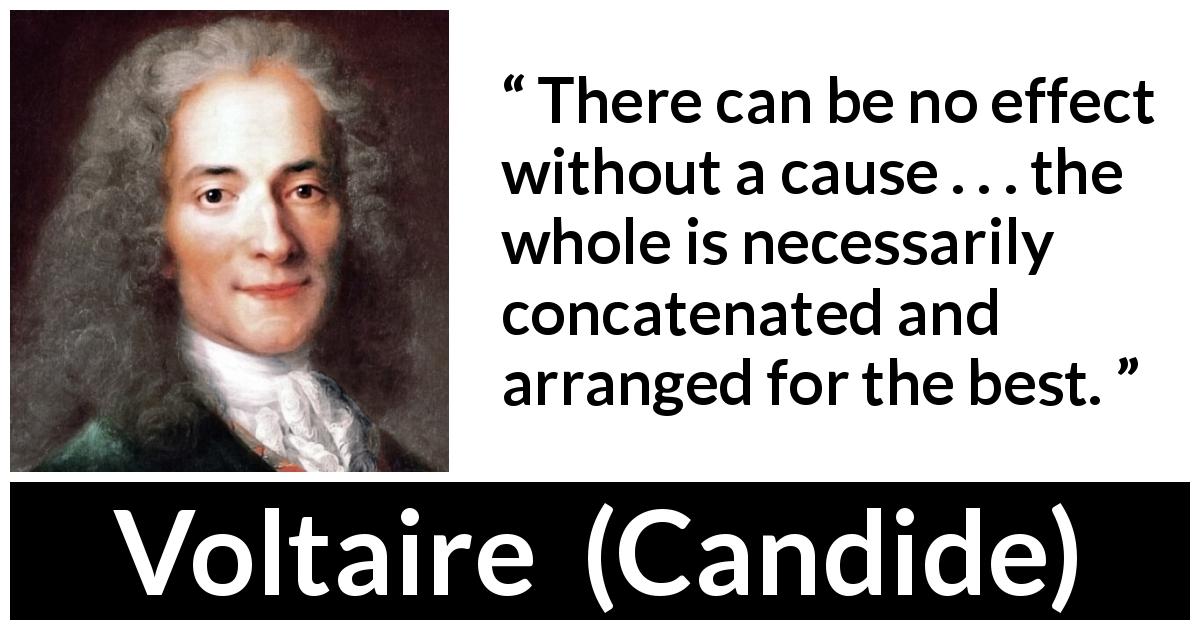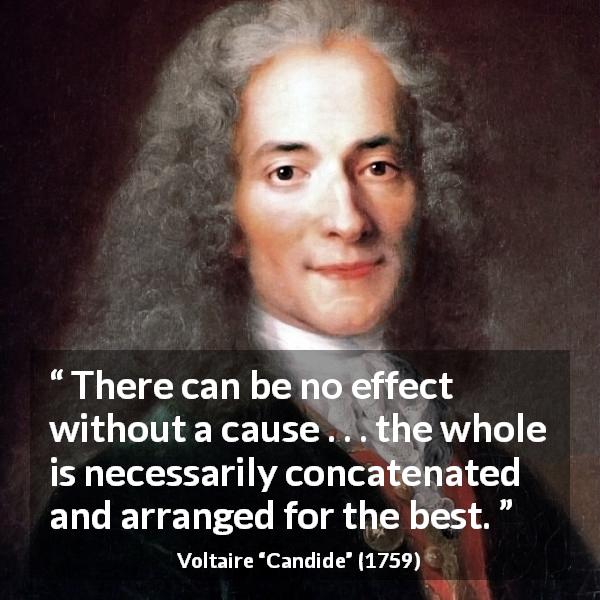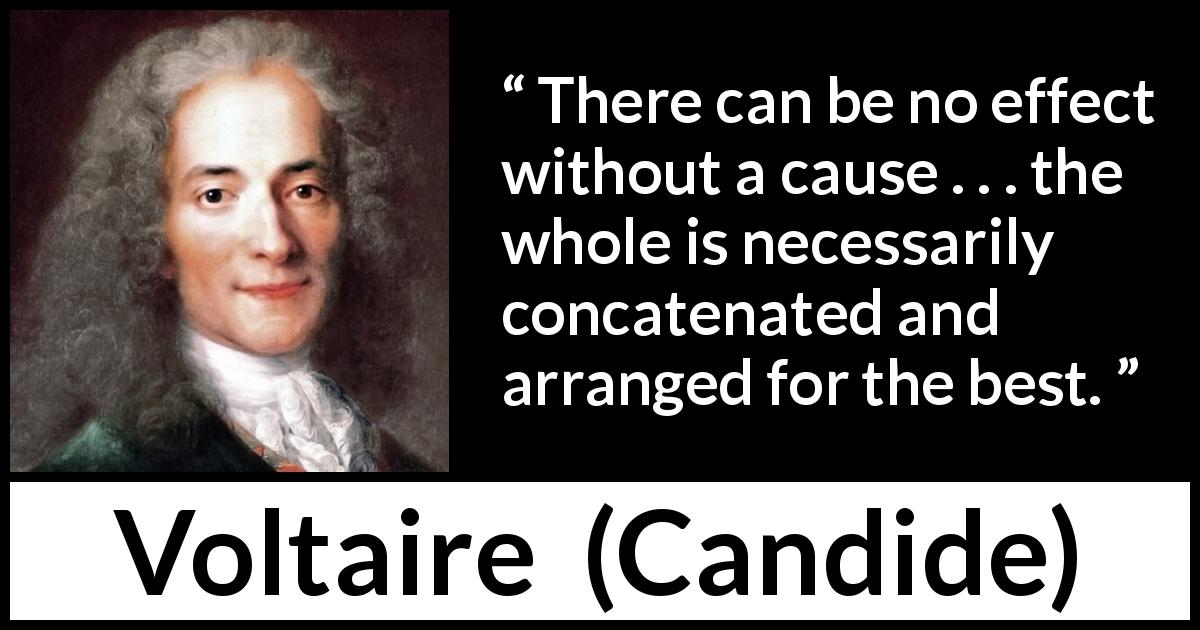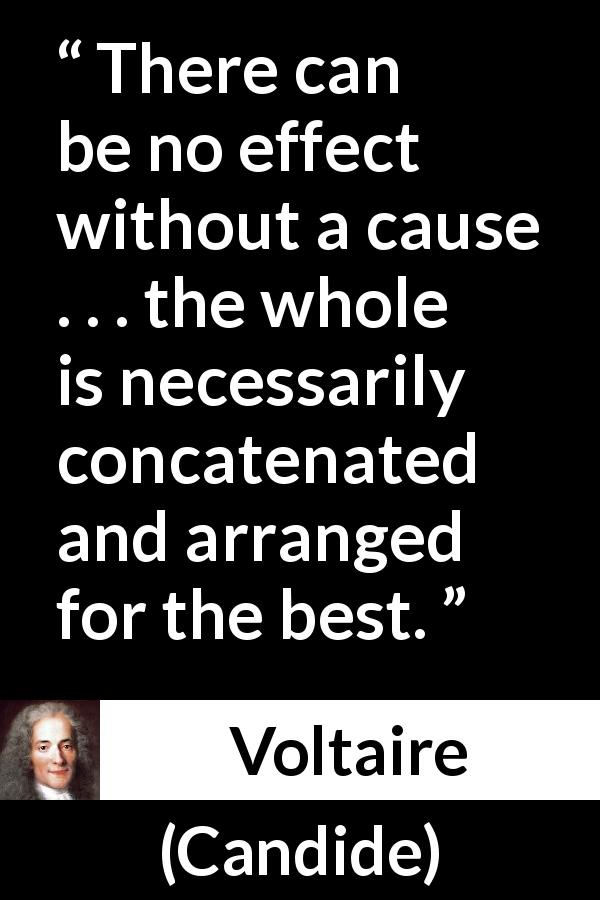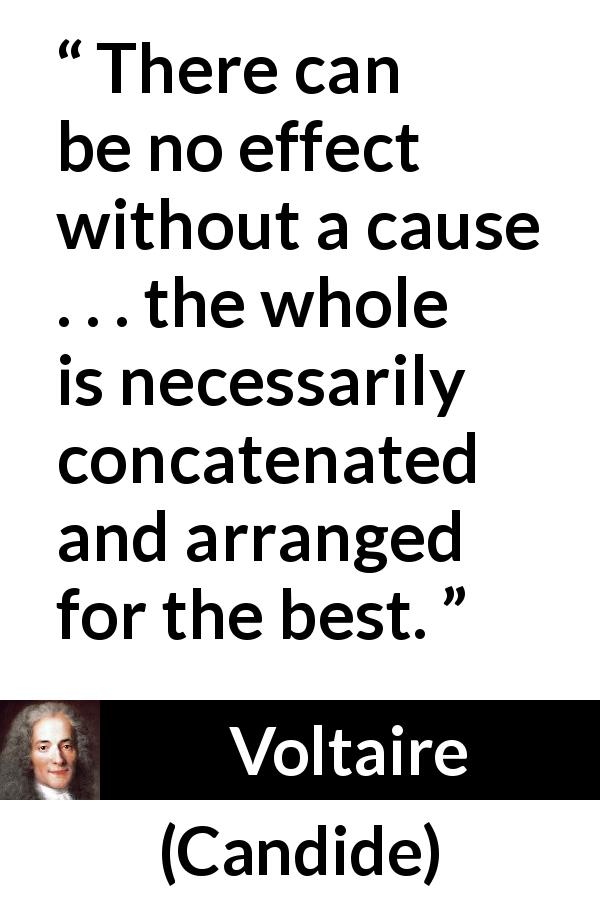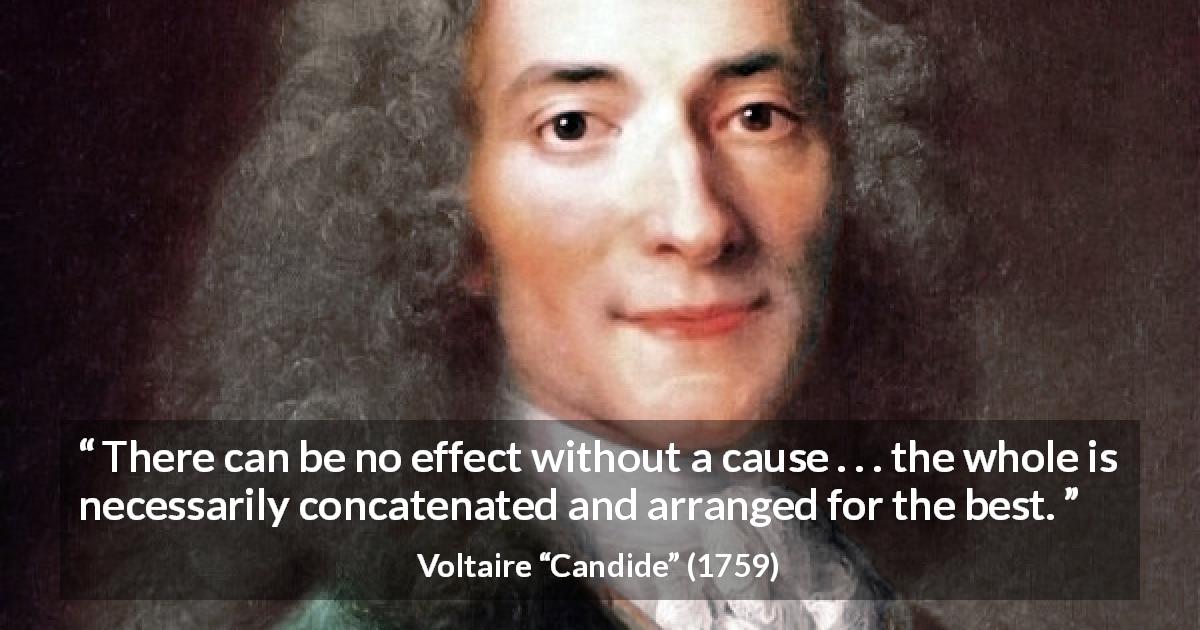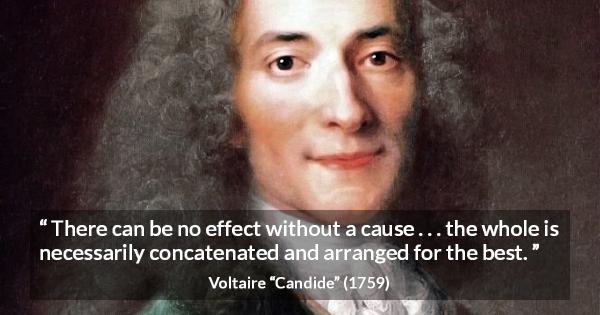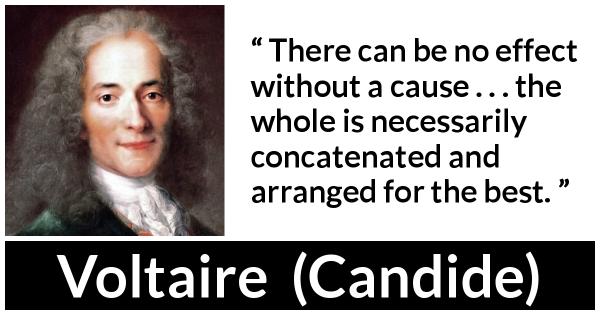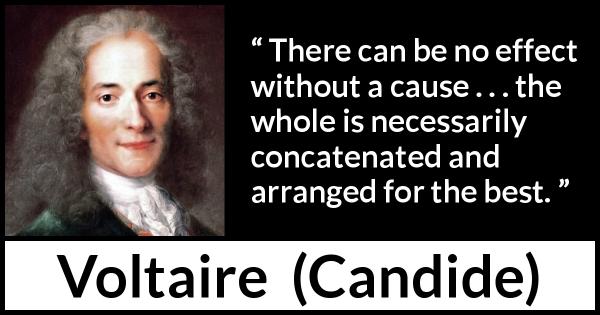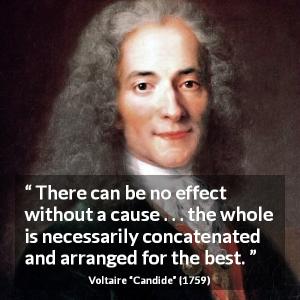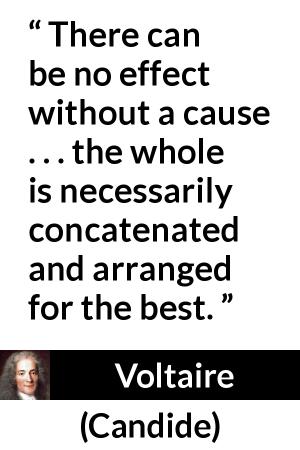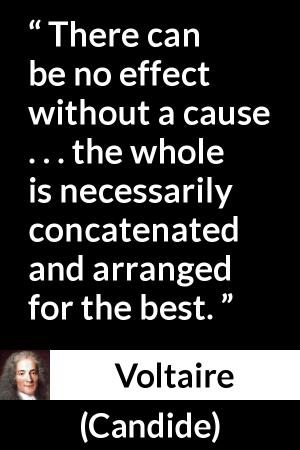“ There can be no effect without a cause . . . the whole is necessarily concatenated and arranged for the best. ”
Voltaire, Candide (1759). copy citation
| Author | Voltaire |
|---|---|
| Source | Candide |
| Topic | causality |
| Date | 1759 |
| Language | English |
| Reference | |
| Note | |
| Weblink | http://www.gutenberg.org/files/19942/19942-h/19942-h.htm |
Context
“The next he addressed was a man who had been haranguing a large assembly for a whole hour on the subject of charity. But the orator, looking askew, said:
"What are you doing here? Are you for the good cause?"
"There can be no effect without a cause," modestly answered Candide; "the whole is necessarily concatenated and arranged for the best. It was necessary for me to have been banished from the presence of Miss Cunegonde, to have afterwards run the gauntlet, and now it is necessary I should beg my bread until I learn to earn it; all this cannot be otherwise."” source
"What are you doing here? Are you for the good cause?"
"There can be no effect without a cause," modestly answered Candide; "the whole is necessarily concatenated and arranged for the best. It was necessary for me to have been banished from the presence of Miss Cunegonde, to have afterwards run the gauntlet, and now it is necessary I should beg my bread until I learn to earn it; all this cannot be otherwise."” source
Original quote
